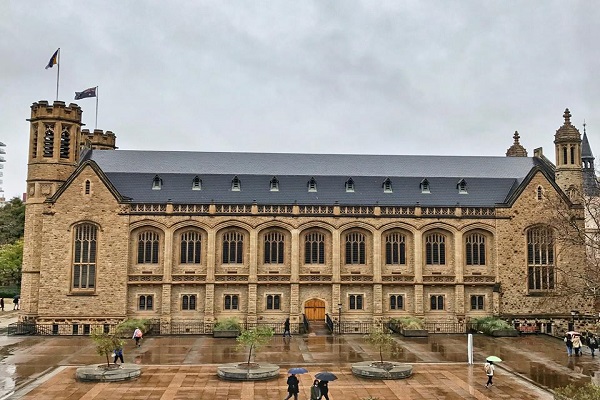University of Adelaide: PhD student wins major climate change award
Bobbie Lewis Baida was awarded a $10,000 prize for her research at an event in Adelaide on Monday night.
“Receiving this award was truly humbling,” Ms Lewis Baida said.
“It means so much to be recognised and supported for my work and really drives me to continue working hard and producing relevant, and quality research.”
Ms Lewis Baida, her supervisor, Associate Professor William van Wettere from the School of Animal and Veterinary Science, and colleagues found that a 1°C increase in global temperatures could lower reproductive rates by up to 20 per cent in some areas of Australia, equalling almost $97 million each year in financial losses.
“After validating indwelling temperature sensors to monitor core temperature in ewes, we have found that some animals are able to better maintain their core temperature than others,” she said.
“In other words, some sheep are more resilient than others.”
South Australia’s multibillion-dollar sheep industry is susceptible to more frequent hot weather due to heat stress, which affects animal welfare and fertility.
Ms Lewis Baida is building on previous research by using non-invasive technology to remotely monitor free-ranging Merino ewes and rams experiencing natural heat exposure.
“I believe my research is important in understanding how we can adapt the Australian sheep industry to better cope with a changing climate,” she said.
“The next stage of my research is to investigate potential biomarkers for quantifying heat resilience in sheep, as well as determining if this is carried across generations.”
Ms Lewis Baida, who was also the inaugural winner for the new Research and Education category, will use the data to quantify the effect of rising temperatures on the welfare, reproduction and lamb growth, and development of grazing sheep.
“Bobbie’s work is an excellent example of how we can use science and innovation to better prepare ourselves for the predicted climate change coming our way,” said South Australian Deputy Premier, the Hon. Dr Susan Close MP.

